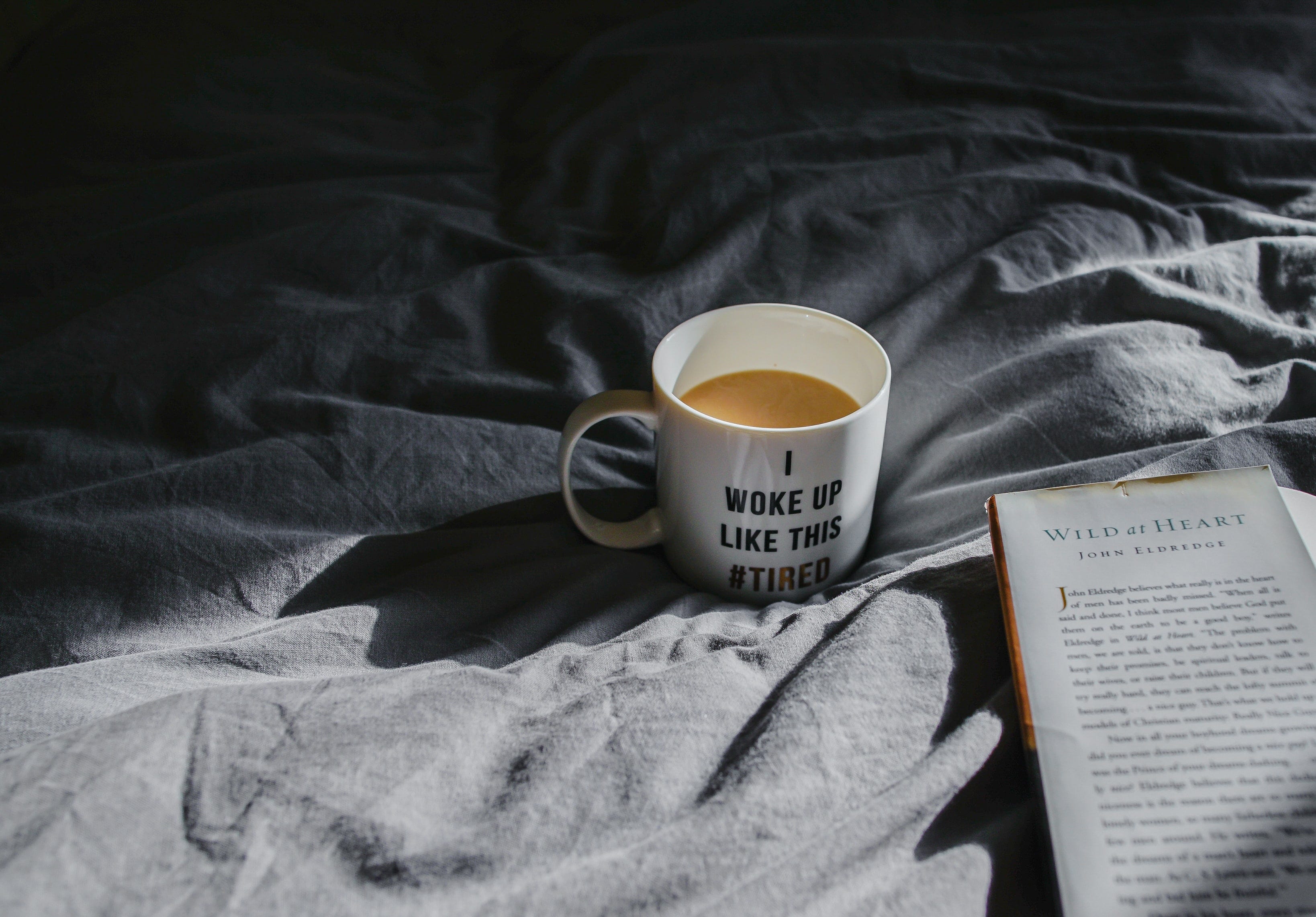
We have a problem.
Sleep is the cornerstone of health and well-being. But most of us don’t get our fill.
One third of American adults do not get enough sleep (1). Australians lose $17.9 billion dollars in productivity a year from sleeping on the job (2). And most major national health services warn of the link between lack of sleep and myriad diseases from obesity to diabetes (3). The WHO suggest that up to 35% of the general population complain about sleep problems and up to 11% suffer from chronic insomnia (4). Almost none of us, according to most studies, get the optimum 8 hours a night.
It’s all pretty tiring to even think about.
With a busy lifestyle, it can be hard to know exactly how to get better quality sleep. So we’ve called in sleep specialist Dr Daniel Gartenberg who has spent the past ten years trying almost every gadget, gizmo, and supplement on the market (as well as reading the key scientific literature of course) to do the hard work for us.
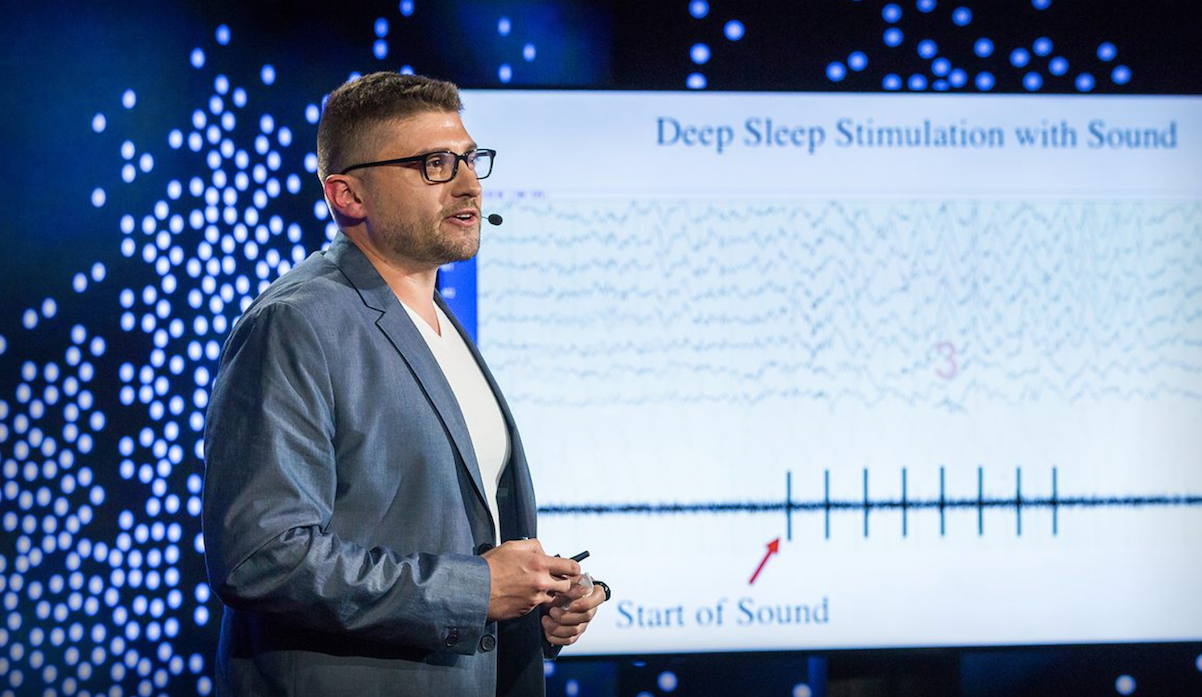
These are his top ten tips for getting a more rejuvenating night’s sleep:
- Establish a bedtime routine.
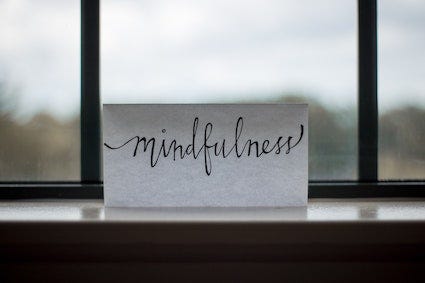
In sleep science, they say that sleep happens 30 minutes before bedtime. In essence, this means you should start preparing yourself with a relaxation ritual before you actually go to bed. Similar to how we train to build muscle at the gym, relaxation is also a muscle that can be built up with practice. If you have trouble falling asleep, start out with practicing relaxation when you are calm during the day. Whether it’s a guided meditation, listening to nature sounds, or something like binaural beats, just pick what works for you. Once you build up this relaxation muscle, start integrating it into your bedtime ritual. This will prep your body for a deep sleep and stop a racing mind.
2. Consistency is key.
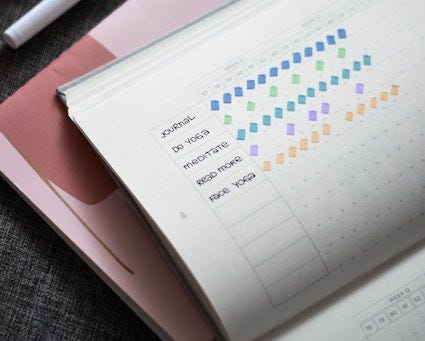
When most people think about consistent sleep they think about going to bed and waking at a similar time every day. But did you know that our naturally occurring circadian rhythm (what dictates if we are tired or alert) can also be strengthened by consistent light exposure, mealtime, and exercise? We actually have genes that get expressed based on these environmental cues. In sleep science this is referred to as chronobiology. The more consistent we are with our environmental cues, the deeper your night of sleep.
3. Control your light in the day.
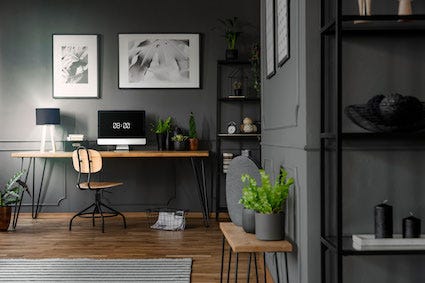
Of all the things that can impact our circadian rhythm and our ability to be tired at an appropriate time, light perhaps plays the biggest role. Everyone should get at least 30 minutes of sunlight exposure every day before noon. Getting this light exposure directly impacts our body by decreasing the flow of melatonin. You’ve heard of taking melatonin for sleep (only small doses are recommended between .25–3 mg), but natural sunlight is actually the oldest drug on the planet. It works in the same way, by inhibiting melatonin and entrenching a healthy rhythm. If you can’t get natural sunlight, you can use the brightest settings your lights have to help you simulate sunlight in your home or workspace.
4. Control your light at night.
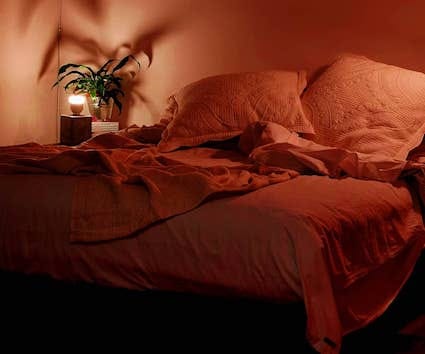
The flipside of getting light in the day is limiting light at night. A professor that I work with, Dr. Anne-Marie Chang contributed to the pioneering research of the disrupting effects to healthy sleep from blue light emitted by our devices at night. While darkness is best, if you need light at night, send your body the right signals with red light instead of blue light. LIFX lights are a perfect solution for this as they can create deep red home environments before bedtime. My nightly ritual begins with me saying “Hi Siri, I’m going to bed” to dim my lights and turn them red, before starting my daily gratitude practice with ocean waves in the background.
5. Reduce noises in your bedroom.

You’d be surprised how even subtle sounds in your bedroom can wake you without you even being aware. In our Penn State laboratory we studied human brainwaves and observed your brain can be woken from something as seemingly innocuous as an air conditioner turning on. That’s why one of the simplest solutions I recommend for people is a sound mask, or pink noise, to block out disruptions in your bedroom (also key for dealing with a pesky snoring bed partner). There are many solutions available that are very little to no cost that can make a big difference.
For anyone interested in the science, I suggest checking out this study into how white noise exposure in an intensive care unit (ICU) improved sleep quality.
6. Compartmentalize a racing mind.
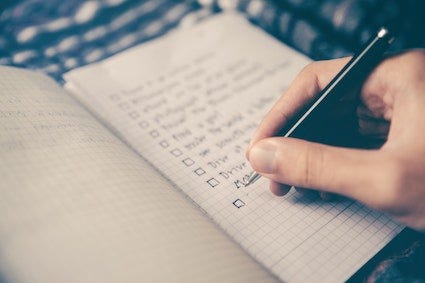
Is your main issue a racing mind at night? Whether it’s causing you to stay up or meaning you can’t stay asleep, there are non-drug related, behavioral solutions that can help. One of the simplest things I recommend to my clients is to compartmentalize your stress at night by creating a to-do list for things that need to be done the next day, and integrating this to-do list ritual into your bedtime practice. This will help prevent those thoughts from surfacing when you are trying to sleep.
7. Track it to hack it.
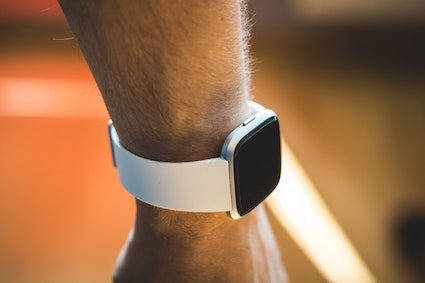
There are so many trackers on the market and often times it’s hard to make sense of the data that they provide. Whether you use the FitBit, Oura Ring, Apple Watch, Beddit, Biostrap, Withings, Garmin, or one of the other various options, it is important to understand what these devices actually tell us. For example, don’t focus too much on the sleep stage measures because they can be misleading, however these devices are becoming increasingly accurate for detecting sleep from wake. By comparing night to night you can better understand how your behaviors are impacting your sleep and identify the most effective routine for you.
For more details about how accurate (or inaccurate) these devices can be, check out this poster we published at the Behavioral Sleep Medicine Conference.
8. Help your sleep by helping your family’s sleep.
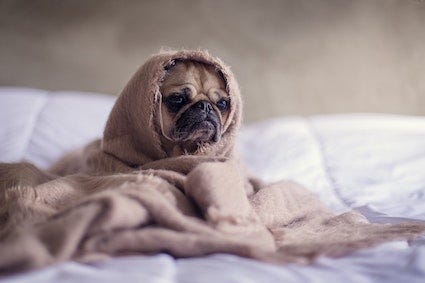
Sometimes it’s not you, but your sleep partner, baby, or pet that is the root cause of your sleep issues. These factors often have simple solutions. Maybe it’s having two comforters instead of one so there is less fighting for blankets (which is very commonplace in Europe). Or maybe it’s sleep training your baby with a relaxing bedtime ritual and sleep story. And… No sleeping with animals! Remember cats are nocturnal and will negatively impact your sleep quality. For dogs, try setting up a doggy bed at the foot of your bed instead.
9. Take a hot shower or bath an hour before bed.

Often times, the more we try to fall asleep, the harder it is. A big part of sleep is recognizing when you are ready to fall asleep and not forcing it. It’s all about letting go. So on those days when you’re particularly wound up or stressed, take it for what it is and try to intervene with extra relaxation. One solution I like after a stressful day of work is a long bubble bath with some fiction reading. The high temperatures for prolonged time can also prime you into deeper sleep, as mentioned in Mathew Walker’s article on how to improve deep sleep (along with a few other interventions I haven’t touched on here).
10. Wake up gradually.
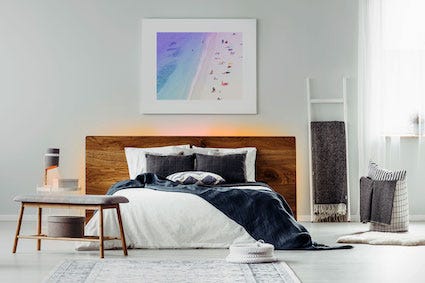
We aren’t meant to wake with the jolt of an alarm clock in the morning. This can cause chronic stress to the system which can in turn flatten our circadian rhythm — making us sleep less deeply. In sleep science this is referred to as the cortisol awakening response, or more simply put, the change in your stress hormone concentration that occurs in the first hour after waking from sleep. We actually want a strong cortisol awakening response in the morning because it helps us wake up and not have that brain fog feeling. One way to ensure a healthier cortisol awakening response is to wake up gradually, with the bonus advantage of helping us get more sleep when we need it. The best way to accomplish this is to ditch the alarm clock. But, if like many of us you need a little help waking up this can be done in other ways. Using a combination of the Sonic Sleep Coach app to slowly increasing play bird sounds and a smart light that gradually brightens your room and mind will do the trick and wake you ready to seize the day.
Now, lights down and off to bed.
Sources:
(1). From 2016 study in the Centers for Disease Control and Prevention (CDC)
(2). Report: Asleep on the job; Costs of inadequate sleep in Australia from the Sleep Health Foundation, August 2017
(3). https://www.nhs.uk/live-well/sleep-and-tiredness/why-lack-of-sleep-is-bad-for-your-health/
(4). WHO technical meeting on sleep and health Bonn Germany, 22–24 January 2004
